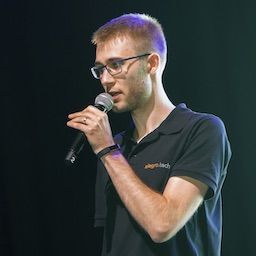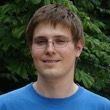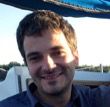May 13 2015
According to best practices, when developing a service, one should provide a client for it.
If your service API undergoes changes quite often, constant client updates may become troublesome.
In this article, I will show you how to develop (quickly and effortlessly!) a JAX-RS client that handles all API changes smoothly.
May 8 2015
At Allegro we use many open-source tools that support our work. Sometimes we are not able to find what we want and
this is a perfect moment to fill the gap and to share with the community. We are proud to announce an
initial release of Elasticsearch reindex tool — a tool that
provides an easy way to rebuild indexes in elasticsearch.
May 6 2015
One of the major goals of software development, apart from actually delivering the product, is to guarantee it is of proper quality and not prone to
errors. Big modern systems tend to consist of dozens of smaller pieces, often accompanied by some legacy core or part of legacy system.
Each of these, often very different pieces of software communicate with each other in some way, in synchronous or asynchronous way,
through REST endpoints, SOAP services or a variety of messaging systems.
This leads to new challenges. A failure or unexpected change in one place may lead to a misbehaviour in other parts of the system.
Apr 28 2015
You might have read a recent post by our developers concerning performance analysis tools and its follow up concerning sysdig.
In the database world these tools come handy almost everyday. In this blog post
I will show you a case where I have put tools to action diagnosing a MongoDB issue.
Apr 16 2015
If you are an agile developer who is fluent in multiple languages, you understand the importance of testing. You have
several types of tests (unit, integration or behavioural) at your disposal to check your application. The number of
available tools, frameworks and even languages is enormous, just to mention a few:
Junit,
Geb,
jBehave,
Cucumber,
Spock,
Selenium.
Dozens of other tools can help you verify whether your code is working properly. Besides, I assume you are familiar with
TDD and BDD methodologies which are rather standard nowadays. Nevertheless, all of these tools have common
limitations – they check your test environment only. Let me show you how one of Allegro teams responsible for the
Offer Listing tests the production environment.
Apr 13 2015
Allegro is a leading Central European e-commerce platform, offering a vast diversity of new
and pre-owned products. Search engine is the main entry point to allegro.pl product stock.
Designing a bunch of UX metrics for a SaaS solution or
a social networking site is a must. Typically no one would dare
discuss whether it is worth our time to measure the effect of changes through an
A/B test or a focus group and monitor
the impact on metrics. When it came to search engine — a back office product with almost no interface — we had our
doubts. We are the search team behind the Allegro search engine. This is the complete interface of our product:
Apr 10 2015
Nowadays, Spring Boot gets more and more popular as it simplifies creating standalone, production-grade Spring based
applications. It offers e.g. auto-configuration support for most of the available Java-based template engines
such as Velocity, Thymeleaf, etc. Today, we would like to publish the new Spring Boot starter that supports
auto-configuration of other popular template engine we have recently got used to —
Handlebars. Hopefully you might find this little piece of code useful.
Apr 8 2015
So you have created a brand new and shiny Node.js based app. And now, how would you like it
deployed? How to pack it and deliver to a production environment? In this post we’ll describe this process (we
assume some familiarity with the concepts of Node.js and npm).
Apr 3 2015
At Allegro we use many open-source tools that support our work. Sometimes we are not able to find what we want and this is a perfect moment to fill the gap and
to share with the community. We are proud to announce an initial release of Tradukisto — a small Java library created to
convert numbers to their word representations.
Apr 1 2015
Several month ago, we thought about taking part in an interesting experiment. We decided to grab all the equipment we
need at work and to go outside the office for one sprint, i.e. for a week. During the planning stage, we listed some
assumptions we wanted to test:
Mar 30 2015
On 14 March, at 19.00 the 2nd edition of BrainCode Mobi, i.e. a mobile hackathon organised by Allegro became history. This event was special because it was held in four cities: Poznań, Warsaw, Toruń and Kraków.
Mar 24 2015
We, Scrum Masters at Allegro, undertake actions that facilitate the work of our Developers, Product Owners and the
Organization itself. We are working with individuals and teams in a variety of ways to remove impediments,
increase their agility, etc. We do not limit ourselves to only following the
Scrum Guide as this 16-pager is only a
framework — the possibilities of acting as a change agent, facilitator and servant leader seem to be endless.
Mar 18 2015
Hello stranger. It’s your first day as a fronted developer. Here is your brand new desk, computer and stuff.
Enjoy your work! Oh, I’ve almost forgotten! You’ll need to read this 500-page Design Manual to know what are we aiming for.
Don’t worry, it’s really simple — there are a lot of examples there. It’s written in two languages, every line is commented
and we will occasionally ask you about some random padding — just to be sure — that you have learnt everything well… — is there any company still working like this out there?
Mar 12 2015
The story begins two years ago during an excellent TDD training given by
Szczepan Faber
and Tomek Kaczanowski
for a bunch of Allegro developers. Surprisingly, it was a trigger to revolutionize our builds at Allegro.
Mar 9 2015
The aim of this blog post is to summarise an experiment that took place between two
scrum teams at the end of 2014 and to share our lessons learned. Have you ever worked
in close cooperation with another team? Of course you have. But how close is close?
Have you ever wondered what happens when you go one step further than cooperation and
you actually mix two teams, stir or even shake? During that time we discovered a lot about team dynamics,
sources of inner responsibility that is essential for any team to make commitments and what are the biggest obstacles
on the way towards self-organisation. So, without further ado, let the story begin…
Mar 4 2015
Any website finds identification of visitors crucial.
Usually, cookie files are used, but they have several drawbacks,
as users can delete or block them (e.g. by activating the “incognito” mode in web browsers).
Besides, cookies fail to identify a user who uses several different web browsers, even if he or she connects using the same device.
Hence the idea of a browser fingerprint — a unique user identifier
which does not change between successive sessions and which does not depend on selected web browser.
Mar 2 2015
Typically, applications we develop gain more and more features in each sprint. After a certain time it’s hard to say how
a particular functionality should work. No one remembers all the corner cases without looking into the source code. So
we write high level acceptance tests that describe expected behavior. Using some example scenarios that the end user
could trigger, tests check that the outcome is correct. After the user story is implemented, the test joins a
regression suite that will protect the application from bugs
introduced in future stories.
Feb 26 2015
This post is an introduction to sysdig — an “open source, system-level exploration” tool that ease
the task of performance troubleshooting in Linux operating system.
Feb 23 2015
According to what we were taught at school, you cannot build a perpetual motion machine as it is against
the laws of thermodynamics. There is nothing in the world that can generate energy forever, without any energy
source. Anyway, I am not going to teach you physics. Instead, I would like to write about the energy that drives us.
Feb 18 2015
There’s no denying that the most important way
to reach an offer on Allegro is a search bar. How it works from the user’s point of view everybody knows. You input a
search phrase, select some filters when needed, click “search” and you get some results, usually quite fast. What looks
like a simple and straightforward process on the surface, inside actually engages really
complicated algorithms. In this first post of the series we will try to make you a little bit familiar with the tools we
use here at Allegro to make search happen. In an upcoming post, we will describe how to use them, focusing mainly on the
analysis process.
Feb 13 2015
On January 30th we made a visit to GeeCon TDD to find out what’s going on in the world of TDD. Allegro was one of the sponsors
of the event and our colleague Piotr Betkier appeared as a speaker. The theme of the conference was the broad subject of
software testing and TDD. The question for the conference to answer was “Is TDD dead?”. The major stars who came to Poznań
were Nat Pryce and Steve Freeman, authors of the book “Growing Object-oriented Software, Guided by Tests”.
Feb 11 2015
Allegro was founded in 1999. As you can imagine, technology was quite different at that time.
Small startup of three developers wrote first version of the platform. There was no problem with scalability as there
were only hundreds of users. We didn’t even used any sql database. All data were stored in the files. This first few
years of Allegro are all almost mythical for current developers as no code or data schema is preserved from these
times. Over all those years we have grown up – a small company hiring a few programmers has changed into a
corporation with dozens of teams and hundreds of programmers. Everything was much easier back then when people were,
literally, working together. But with the growing number of programmers, we faced problems that soon turned into
blockers. Our code and its complexity grew along with the company. After some time, we realized that such uncontrolled
growth would block us one day. Application maintenance would become expensive, and any change of the system
behaviour would be risky. That is why we decided to act and our today’s architecture is the result of that decision.
Here is the story of our transition.
Feb 6 2015
Even though a lot of software development is high-level stuff which does not require the developer to delve into the details of how things
work under the hood, in certain situations it can be very helpful to know what sort of low-level operations an application is performing.
Two typical scenarios are performance tuning and debugging.
Feb 3 2015
In this post I would like to show you how to add a resource programatically in Jersey
container. We start from a business use case that needs to be implemented. What we are
trying to achieve is to allow external clients to use some resources of internal
microservices. I am aware of the fact that the solution we are going to discuss is not
the best way to solve the problem. Choosing the best solution lies outside the scope
of this post. What is covered in this post are the steps and solutions we tried to use
in order to solve the problem.
Jan 29 2015
When you publish your service API it is crucial to make it easy to upgrade. If you forget about it, you might end up in dependency hell.
Each attempt to change your API will force you to contact all your clients and tell them to upgrade their software.
As a result, both you and your clients will be very unhappy.
You can mitigate it by providing multiple versions of your resources. But there is no single way how to manage them.
Different companies solve it in different ways. Below you find three most popular approaches.






























